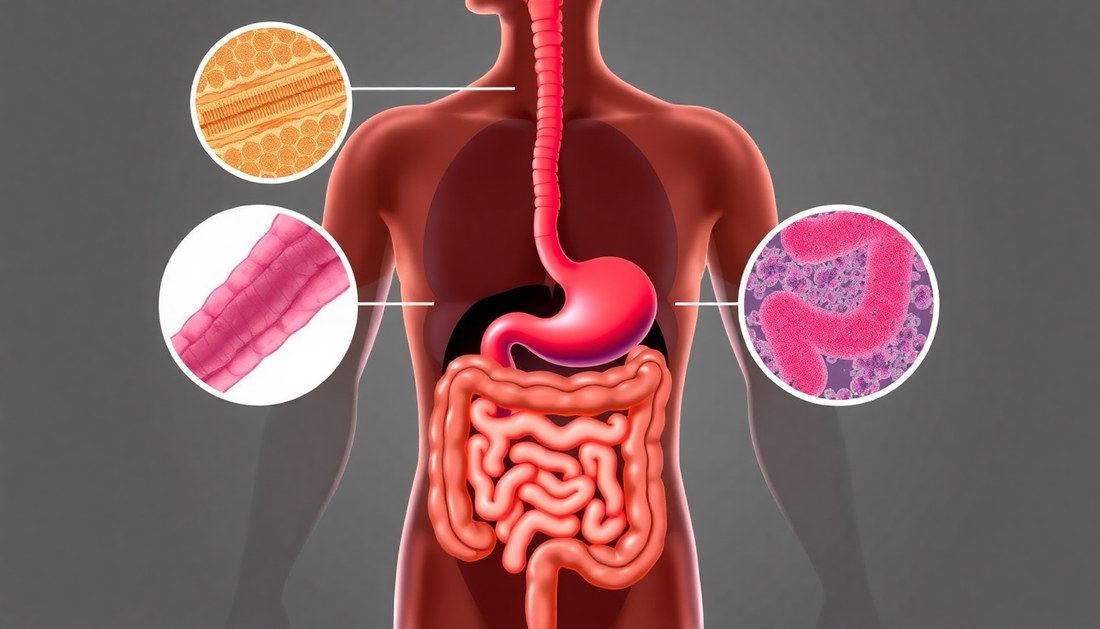
Gut 101: Your Body’s Superhighway to Health
Share
Word Count: 600; Estimated Reading Time: 4 minutes
Your gastrointestinal (GI) tract is an extraordinary system that works tirelessly to keep your body functioning. It’s responsible for digesting food, absorbing nutrients, and eliminating waste, all while supporting immunity and even influencing your mental health. Let’s explore how this incredible system works, its key organs, and how to keep it healthy.
The GI tract is a 30-foot-long tube running from your mouth to your anus. It’s composed of several organs, each playing a specific role in digestion:
• Mouth: Where digestion begins, breaking down food mechanically through chewing and chemically with saliva.
• Esophagus: A muscular tube that transports food to the stomach via rhythmic contractions called peristalsis.
• Stomach: A muscular organ that mixes food with digestive acids and enzymes to break it into smaller particles.
• Small Intestine: Roughly 22 feet long, it absorbs most nutrients, with help from digestive enzymes and bile from the pancreas and liver.
• Large Intestine: Absorbs water and electrolytes, processes fiber, and eliminates waste.
• Rectum and Anus: Store and expel waste from the body.
One of the most fascinating aspects of the GI tract is the gut-brain axis, the communication network between your digestive system and central nervous system. Often called the “second brain,” the gut contains millions of neurons and communicates with the brain via pathways like the vagus nerve. This connection influences mood, memory, and mental health. Research shows gut imbalances may contribute to anxiety, depression, and even neurodegenerative diseases.
Equally important is your gut microbiome, the trillions of microorganisms living in your digestive tract. These bacteria, viruses, and fungi help digest food, produce essential nutrients like short-chain fatty acids, and regulate immune function. When the microbiome is unbalanced, it can lead to bloating, inflammation, and chronic health issues.
Maintaining a healthy GI tract requires proper nutrition and self-care. A gut-friendly diet focuses on:
• Fiber-Rich Foods: Whole grains, fruits, vegetables, and legumes fuel beneficial bacteria and promote regularity.
• Probiotic-Rich Foods: Fermented options like yogurt, kefir, sauerkraut, and kimchi add beneficial bacteria to the gut.
• Hydration: Water helps with nutrient absorption and waste elimination.
Avoiding highly processed foods and excessive sugar can prevent disruptions to the microbiome and reduce inflammation.
At Luméa, we’re committed to supporting your gut health. Our premium, all-natural products, including psyllium husk and peppermint oil, are designed to promote a healthy microbiome, regular digestion, and overall well-being.
Your GI tract is more than a digestive system; it’s a key player in your immunity, mental health, and vitality. By understanding its functions and taking steps to support its health, you can unlock a lifetime of better well-being. Let Luméa guide you on your journey to optimal gut health.




